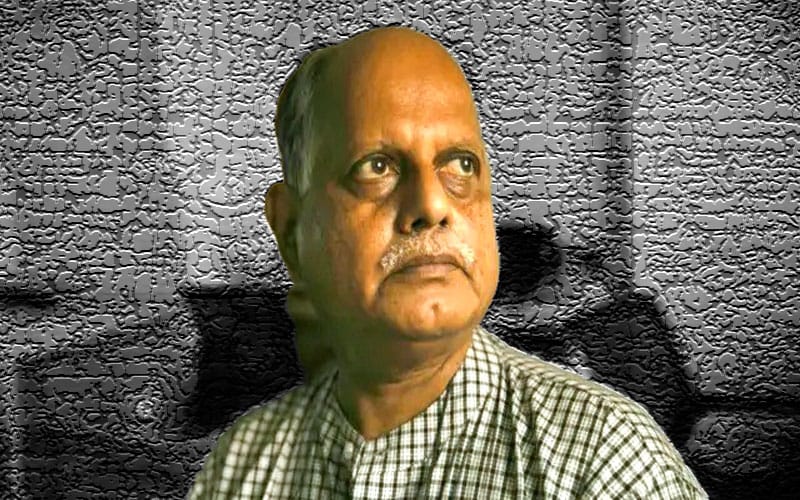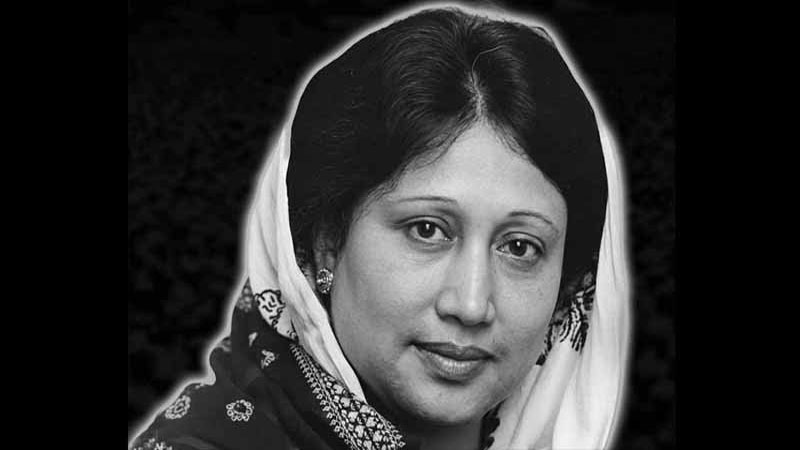
Death of Journalist Bibhuranjan: ‘I Have a Few Words to Say'


Chhabed Sathee
Today, Bangladesh’s journalist community remembers Bibhuranjan Sarker with heavy hearts. His sudden and tragic death is not only a personal loss but also a profound blow to the nation’s journalism. He was a man who never treated journalism merely as a profession, but as a duty and a responsibility.
Bibhuranjan Sarker’s journalism was rooted in truth and justice. He believed that news was not just information but a powerful medium to enlighten society. He never chased sensational headlines; instead, he used his pen to guide readers toward truth. Such people are exceedingly rare today.
Yet, his death forces us to confront some difficult questions. In this harsh reality of journalism, have we given our colleagues enough respect, safety, and care? Why did someone who dedicated his life to enlightening society have to endure loneliness and neglect in his own life?
The sudden and tragic death of senior journalist Bibhuranjan Sarker is not only a personal tragedy but also a reflection of the weakness, negligence, and unethical practices that plague today’s journalism. His passing reminds us that in this profession, one must often endure neglect, pressure, and unhealthy competition—sometimes paying the ultimate price with one’s life.
Bangladesh’s journalism has a proud history, but in recent decades, it has sunk into a crisis of ethics. Shallow reporting, lack of verification, political allegiance, financial struggles, and the erosion of professional independence have weakened the media. Too often, news has been used as a tool to serve personal or group interests. Journalists like Bibhuranjan Sarker always wanted the press to stand for truth, objectivity, and readers’ trust. Sadly, many in the younger generation have lost sight of that fundamental responsibility.

In our country today, journalism has become an uncertain livelihood. Irregular salaries, lack of security, fear of losing jobs, and political pressures have created a climate of extreme stress for journalists. Depression has become a grim reality within the profession. Bibhuranjan Sarker’s death points directly to the fact that journalists too need an environment that ensures their physical and mental well-being—something we have failed to provide.
As readers, we also cannot escape responsibility. There is a public appetite for yellow journalism, flashy headlines, rumors, and half-truths. This encourages media owners to chase clicks and ratings rather than professionalism. Truth takes a backseat to entertainment-driven reporting, leaving dedicated journalists unrecognized and isolated.
If we treat Bibhuranjan Sarker’s death merely as an occasion for grief, it will be our failure. Instead, it must serve as a moment of self-reflection for journalists, media owners, and the state alike. We must ask: how can we ensure protection, respect, and dignity for those in this profession? Without safeguarding the independence and ethics of journalism, the next generation will not find inspiration in figures like Bibhuranjan Sarker.
Journalism is not just a profession—it is one of the pillars of democracy. If this pillar weakens, both the state and society will suffer. Bibhuranjan Sarker’s death is not only a message of mourning but also a warning: if we do not address the present crisis in journalism, a far worse situation lies ahead. Now is the time to rebuild journalism, to restore professionalism and ethics.
The decay in Bangladesh’s journalism—yellow journalism, rumors, half-truths, political allegiance—made even a principled and dedicated journalist like Bibhuranjan Sarker feel increasingly isolated. His death is therefore not just a moment of grief, but a moment for deep self-examination.
Today we bid him farewell with the deepest respect. His pen may no longer write, but his honesty, integrity, and unwavering commitment to truth will continue to guide us. In these dark times for journalism, Bibhuranjan Sarker was a beacon of light. Though that light is gone, its brilliance will live on in our memory forever.
Final Word
Losing Bibhuranjan Sarker does not only mean losing a journalist—it means losing a seeker of truth. To honor him is to pledge that we will uphold the integrity, ethics, and humanity of journalism.
Respect, love, and a tearful farewell—
Bibhuranjan Sarkar, you will live on among us.
Chhabed Sathee: U.S based writer, journalist and American political analyst [Bangla Press is a global platform for free thought. It provides impartial news, analysis, and commentary for independent-minded individuals. Our goal is to bring about positive change, which is more important today than ever before.] BP/CSYOU MAY ALSO LIKE






